











|
|
  
|
John
McCullough
(1832-1885)

|
|


|
"His
Othello was an imposing and martial
figure, with authority in voice and
mein and all the external indications
of the 'frank and noble nature' with
which Iago credited him. And his
'waked wrath' was terrible... Bit is
was only in storm and stress that it
was remarkable. In detail it was
crude, unimaginative , unfinished, a
bold freehand sketch rather than a
complete study." J. Rankin
Towse |
|

|
|
McCullough,
John [Edward] (1832-1885)
American actor born in Ireland. After
his mother died when he was 15 years
old, he was sent to live with
relatives in Philadelphia. He soon
began taking an active interest in
amateur theatricals and became
involved with the Boothean Dramatic
Association. He made his professional
debut at the Arch
Street Theatre, Philadelphia in
1857 in The Belle’s Stratagem.
During the 1860-1861 season he toured
with E.L.
Davenport. He then came to the
attention of Edwin
Forrest, who adopted him as his
protégé and principal supporting
actor. He toured with Forrest from
1861-1865. The result of this
apprenticeship was that McCullough’s
repertory and acting style very much
resembled that of the older actor. A
tall, classically handsome man in the
heroic mold, he had a volatile, robust
acting style like his mentor. After
Forrest's death in 1872, McCullough
assumed several of the roles upon
which his predecessor had based his
career such as Sparatus
in The Gladiator, Virginius
and Jack Cade. He also excelled at
Othello, King
Lear, Coriolanus
and Mark Anthony. He left Forrest's
company in 1866 to take over
management of San Francisco’s
California Theatre in conjunction with
Lawrence
Barrett, and continued to run the
theatre after Barrett’s departure in
1870. But financial difficulties
forced him to give up the California
Theatre in 1877 and he spent the rest
of his career touring in his best
known roles. In 1881, he made a brief
starring engagement at London’s Drury
Lane Theatre as Virginius and
Othello. His mental health began
showing signs of declining in 1883 and
he made his last appearance in Chicago
in 1884. His growing metal instability
forced his commitment to a metal
institution in the summer of 1885, but
he was released shortly before his
death at the age of 53. He was highly
admired for his fairness, in an
otherwise selfish profession, although
his acting style was seen as belonging
to a passing tradition.
|
|

|
|
(click
on photo to enlarge) |
|
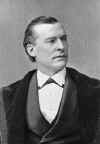
|
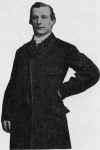
|
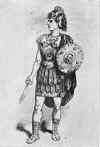
|
|
Portrait |
as
a young man at the Boston Theatre |
as
Coriolanus |
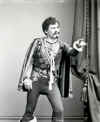 |
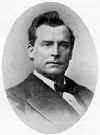 |
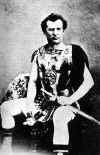 |
| as
Iago |
Portrait |
as
Spartacus |
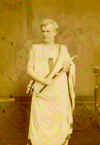 |
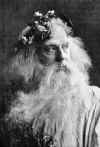 |
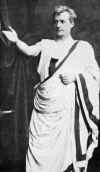 |
| as
Virginius |
as
King Lear |
as
Virginius |
|

|
|
Joseph Haworth
and John McCullough
 |
|
Joseph
Haworth was leading man to John
McCullough in the years 1882-1884. In
later years he said of McCullough:
"He
was a grand man in many ways. His
education was in the theater and in a
wise use of the Encyclopedia
Britannica. He gained in knowledge by
absorbing the thoughts of the great
minds with whom he came in
contact---his acquaintances numbering
some of the most noted statesmen,
Presidents, lawyers, doctors, etc.,
that this country has produced. His
parents were north of Ireland
people---modest farmers who little
dreamed when their unlettered boy
sailed for our own beautiful shores
that he was bringing his ship to the
haven of success of fame and fortune.
I
had the honor of supporting him in his
last engagement in Chicago. Miss Viola
Allen was then the leading juvenile
and I the leading man of the
organization. The world knows of
McCullough’s sad end, and will be
silent while we draw the curtain on
his notable career."
Joe
wrote movingly of McCullough's death
in his article "The
Last Days of John McCullough"
for Harper's Magazine in
|
|

|
|
Top
of page |
|
|
|
 |